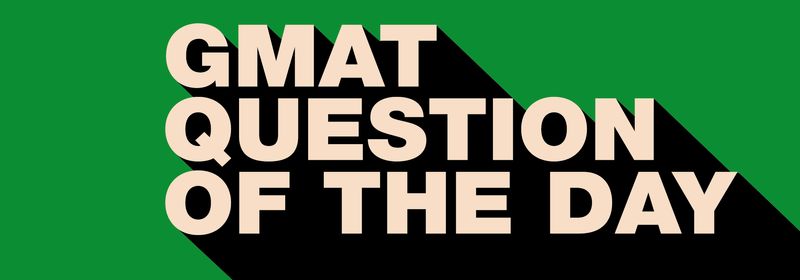GMAT Question of the Day – DS # Properties – April 30th, 2014
Does the decimal equivalent of $$m^3/n^2$$, where m and n are positive integers, contain a finite number of non-zero digits?
(1) (2n – 2)(2n – 4) is not divisible by 6
(2) m = $$10^x$$ where x is a positive integer
[spoiler]C.[/spoiler]
In order to convert to a decimal that contains a finite amount of non-zero digits a fraction can only have multiples of 5’s and 2’s in the denominator. Examples are 1/2, 1/5, 1/8, 1/10, 1/20.
(1) This simplifies to 2(n-1)(n-2). If that expression is not divisible by 6 then it is not divisible by 3. Because the factors of 6 are 2 and 3 – we already have the 2 in the expression so we must be missing the 3. Since (n-1) and (n-2) are not divisible by three that means that the next consecutive integer, n, must be divisible by three. So we are guaranteed two 3’s in the denominator. The question is, are there any 3’s in the numerator to cancel out those 3’s the denominator? If so, the decimal could terminate. If not, the decimal will not terminate. For example, n could be 15 and m could 9 in which case you would only be left with 5’s in the denominator so the answer would yes – there would a finite number of non-zero digits. But, n could be 3 and m could 5 in which case the answer would be no because you would have a repeating decimal. Insufficient.
(2) This only tells us that m is a power of 10. We have no information on n. Insufficient.
(1) + (2) putting one and two together we know that we have at least one three in the denominator and no 3’s in the numerator (so no possibility of canceling the 3’s in the denominator) and therefore we are guaranteed a repeating decimal. Therefore we have a definitive “no” to the question. Sufficient.

